Research and documentation forms a core area of our work. We fulfil our commitment to the needs of marginalised and grassroots communities by taking a participatory approach to building institutional capacity. We do this in the following ways:
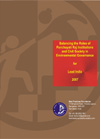
For Lead India
A critical appraisal of the role of panchayats in environmental governances and ways to empower them without compromising the participation of the community.

For Department for International Development (DFID), India
This pioneering book on the peri-urban interface (PUI) in India is unique in its multi-disciplinary approach to highlighting issues related to natural resources, livelihoods and policy. Our research attempts to fill critical gaps in knowledge in related areas such as cropping, markets, sewage, livestock, land and water.
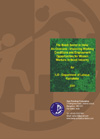
For ILO and the Department of Labour, Government of Karnataka
A comprehensive overview of the Indian beedi industry, and goals and expected outcomes of the ILO's beedi sector programme, this report recommends a two-pronged strategy to work with the community: Mobilising female family members of the beedi workers into SHGs for alternative livelihoods, and working with unions to improve working conditions for the workers.
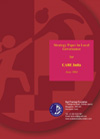
For CARE, New Delhi
A long-term strategy to facilitate the entry of CARE into the area of local governance. The strategy is designed to match CARE's goals and objectives with needs and opportunities in the area of rural local self-governance.
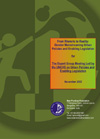
For the Expert Group Meeting Led by the UNCHS on Urban Policies and Enabling Legislation
A gender perspective of urban issues and women's initiatives that have emerged in response to them; a framework with policy implications for engendered governance and gender sensitive urban policies.
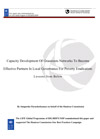
On behalf of the Huairou Commission, commissioned by the LIFE Global Programme, UNDP
A summary of the capacity building and support needs of grassroots networks attempting to build alliances with other institutions working to combat poverty. It outlines the role of government and donors in legitimising the influence of these networks so that communities can have a say in determining their own destinies.
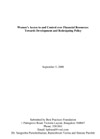
For the Women and Child Development Department, Government of Karnataka
This study reviews self-help group programmes and concepts, identifies gaps and offers recommendations for information and field initiatives in Karnataka. The overall policy was written from the perspectives of three institutional actors in the field - government, banks and the NGO sector.
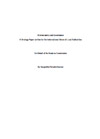
On behalf of the Huairou Commission, commissioned by the International Union of Local Authorities
Sensitising local government to the need for mechanisms that allow women's effective participation in local decision-making is vital to good governance. This paper presents the perspectives of both grassroots women and local government. It highlights best practices of successful partnerships between women and local government and from these examples, outlines the principles on which such a partnership can be based, locally and globally. It simultaneously outlines gaps in areas of work and the basis for future partnerships from a grassroots women's perspective.
On behalf of the Huairou Commission and UNDP
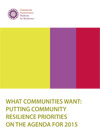
This action research, conducted by the Community Practitioners Platform for Resilience in seven Asian countries, is an effort to capture the voices of community leaders and bring the resilience priorities of poor, disaster-prone communities into debates that will shape the new policy frameworks on disaster risk reduction to be launched in 2015.
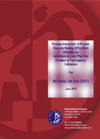
For Sir Dorabji Tata Trust (SDTT)
The main objective of this study was to create a set of process and impact indicators to measure the progress of District Planning Committees (DPCs) at all levels through a collaborative, participatory process. This report provides the updated findings of these indicators tested across three sites, with the process and results described at length.
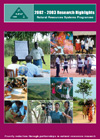
For Department for International Development (DFID), UK
An assessment of the improvement in the livelihoods of the poor, and the enhanced natural resource management systems arising from the implementation of DFID's Natural Resources Systems Programme action plans in six peri-urban villages around Hubli-Dharwad from 2001-2005.
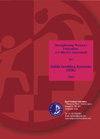
For Mahila Samakhya, Karnataka
An assessment of the growth of women's federations on the basis of their history, activities and performance as perceived by the women. This study considered 32 federations formed by Mahila Samakhya, Karnataka, and assessed the need for capacity building to strengthen these federations.
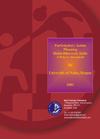
For University of Wales, Bangor
A detailed process to develop participatory action plans for natural resource management and livelihoods in rural areas. The document presents approaches, conflict resolution methods, stakeholder concerns and lessons learned. The key finding is that for marginalised populations, such as women and the landless, mobilisation must precede planning.
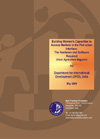
Livelihood initiatives often overlook the needs of landless women, who tend to be less mobile and encumbered by reproductive responsibilities. This article makes a strong case for addressing the issue by a) building their capacity to understand markets b) mobilising them into groups c) creating innovative financial instruments, and d) providing a marketing infrastructure.

Although peri-urban markets offer significant livelihood opportunities, the poorest women find it exceedingly difficult to succeed. Strategies developed by governments and NGOs to address the issue usually take into account only those with either some land or assets. It was in response to this that BPF, working in the peri-urban interface of Hubli-Dharwad, created an innovation called MOVE . This article identifies key factors that enable the poorest, illiterate women in peri-urban areas to create sustainable livelihoods for themselves.

This paper describes the process of participatory planning in five peri-urban villages in the Hubli-Dharwad region to enhance the livelihoods of the poor and manage the natural resource base. The paper describes the characteristics of the villages involved and their specific peri-urban aspects; the tools used; the main issues that emerged from the process and their relevance to different groups (women, landowners, landless and lower castes). It also summarises the main lessons learnt.
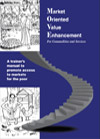
The MOVE Livelihood Enhancement Model is a 12-module programme with proven results in helping socially and economically marginalised individuals lift themselves out of poverty by creating successful and sustainable micro-enterprises.
Its participatory approach, incorporating observation, discussion and games, makes it accessible to illiterate populations without prior exposure to business or the markets. MOVE's innovative techniques and processes, including the Participatory Market Appraisal, builds participants' capacities to research the market themselves without depending on external expertise.
The MOVE manual is an essential resource for local and global organisations seeking to improve livelihood opportunities for the poor.
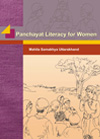
In collaboration with Mahila Samakhya, Uttarakhand.
A toolkit to systematically build the governance capacities of women in the Panchayats.
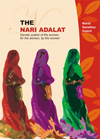
For Mahila Samakhya, Gujarat
Context, perspective and non-negotiable criteria for the setting up and functioning of the Nari Adalats or women's courts whose objective is to provide gender justice to poor women.
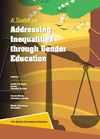
Mahila Samakhya Programme, Kerala
A toolkit that addresses gender education through capacity building for master trainers at the state and district levels. These trainers subsequently train schoolteachers on gender equality in education.
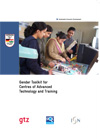
Commissioned by GTZ
A five-module gender toolkit designed as part of a study of five technical training institutes across India, to promote the participation of women in vocational training in male dominated non-traditional sectors.
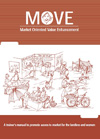
A toolkit for our livelihood innovation MOVE that imparts entrepreneurial skills and training to the illiterate asset-poor. MOVE is based on a customer-centric approach that creates businesses that provide both services and commodities.
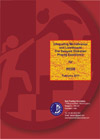
For HIVOS
Swayam Shikshan Prayog (SSP) is a learning and development organisation active in rural Maharashtra and other states. This project comprehensively evaluates its initiatives, lessons and insights, with a view to facilitating women's access to microfinance, livelihoods, health and other services.
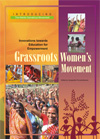
For Department for International Development (DFID), India
A compendium of best practices and innovations in the Mahila Samakhya programme across eight states and showcases the icons among them. The core practices include (a) The Adult Literacy Programmes, that impart need-based literacy and numeracy (b) Nari Adalats (women's courts) that deliver gender justice (c) Mahila Shikshan Kendras (MSKs), residential schools for young adolescent girls, and (d) Kasturba Gandhi Balika Vidyalayas (KGBVs), a national programme which mainstreamed the MSKs. The innovations include (a) the Data Exhibition in Assam (b) the Panchayat Literacy Programme for Women in Uttarakhand.
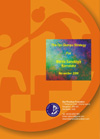
For Mahila Samakhya, Karnataka
In the Oni Gumpu strategy introduced by Mahila Samakhya, Karnataka, neighbourhood groups constitute a platform for information dissemination, community programme monitoring and addressing important issues. This paper builds a case for replicating the strategy through an examination of its objectives, process, capacity-building needs, cost effectiveness, impact and achievements.
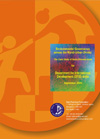
For Department for International Development (DFID), India
The peri-urban interface, with its combination of urban and rural features, requires an integrated approach to planning and implementation. This article contributes towards the understanding of the formal and informal institutional mechanisms governing the use of natural resources and the livelihood options of the poor in the peri-urban context. The analysis is based on the findings of action research projects conducted between 2000-2005.
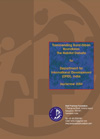
For Department for International Development (DFID), India
The peri-urban interface (PUI) represents an area of increasing threat and opportunity both to the poor and to policy makers. A multi-dimensional area where the urban meets the rural, it calls for flexible policies that are collaborative, integrated, holistic and can adapt to its dynamic character. They must address a new type of poverty and diversity in agricultural systems.
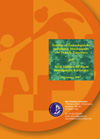
For BAIF Institute for Rural Development, Karnataka
A step-by-step account of the work of BAIF Institute on the Transfer for Technology for Sustainable Development (TTSD) project in the Tumkur cluster in Karnataka. The report details the process, intervention strategies and focus areas in training. Case studies demonstrate the impact of innovations such as Jan Utthan, the WADI agro-forestry model, the 3-J watershed development model and Manav Vikas Sanghas.
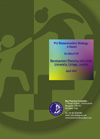
On behalf of the Development Planning Unit of University College, London
As assessment of the effectiveness of the dissemination strategy for environmental planning and management, this document considers criteria such as the utility, validity and legibility of the publicity material. The results indicate that rural and/ or illiterate audiences are best reached through visual media tools such as videos and street theatre.

For ILO, Department of Labour, Karnataka
A comprehensive overview of India's beedi industry and the goals and expected outcomes of ILO's beedi sector programme. The report recommends a two pronged strategy of working with the community that includes a) mobilising female relatives of beedi workers into SHGs for alternative livelihoods, and (b) working with unions to improve the conditions of beedi workers.
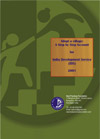
For India Development Service (IDS)
This study documents the processes, activities and impact of the Programme for Integrated Rural Development in villages adopted by IDS. The programme seeks to increase the economic, social, political, health and agricultural self-sufficiency of rural communities through community organisation.
Sending your message. Please wait...
Thanks for sending your message! We'll get back to you shortly.
There was a problem sending your message. Please try again.
Please complete all the fields in the form before sending.



